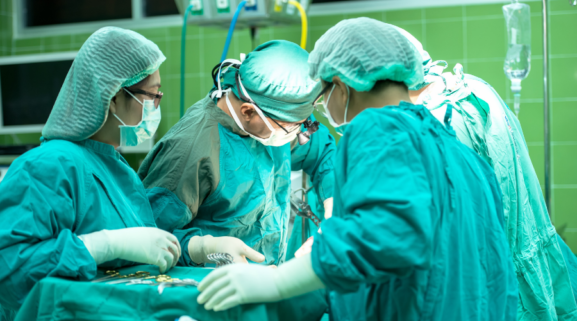Lactose Intolerance After Bariatric Surgery Operation
Lactose Intolerance After Bariatric Surgery Operation
Lactose is a type of milk sugar found in milk and is digested by the enzyme lactase. In case of deficiency of lactase enzyme, lactose cannot be digested and lactose intolerance occurs. Lactose intolerance shows symptoms as abdominal pain, bloating, gas, cramps, diarrhea, nausea, loss of appetite after consumption of lactose-containing products. Even if there is no lactose intolerance before the surgery, lactose intolerance can be seen after the bariatric surgery operation. This is because the amount of lactase enzyme decreases after surgery. For this reason, attention should be paid to consuming lactose-free foods for 3-4 months after surgery. The fact that lactose intolerance causes bloating, gas and abdominal pain is a very uncomfortable situation for patients and may cause loss of appetite and malnutrition in patients. Adequate and balanced nutrition of patients after bariatric surgery is very important. Therefore, foods that cause lactose intolerance should be avoided in the diet list applied after surgery.
What Causes Lactose Intolerance? Does Everyone Experience It?
Lactose intolerance is a condition caused by the inability to digest lactose. Lactose intolerance occurs due to the deficiency of the enzyme lactase, which breaks down lactose in the small intestine. In some people, cells that produce the congenital lactase enzyme may not be found, or lactose intolerance may be seen with the decrease of lactase enzyme in the future. The enzyme lactase is generally not found at very high levels in humans, but dairy products can be digested without a problem. If patients have severe lactase enzyme deficiency and lactose intolerance, they show symptoms within 30 minutes to 2 hours after consumption of milk and dairy products. Intolerance to some foods may occur after bariatric surgery. Lactose intolerance is one of the diseases that can occur after bariatric surgery. The reason for the formation of lactose intolerance after the surgery is that the surgery affects the small intestine and as a result, the production of lactase enzyme is decreased. In addition, an inflammation of the intestinal walls can cause a temporary decrease in lactase production.
What Should be Done for This? What Should Be Considered?
Lactose intolerance can be treated by making changes in diet. Consumption of milk and dairy products should be reduced or stopped. When milk and dairy products are excluded from the diet, other calcium-containing foods should be consumed in the diet for adequate calcium intake. Lactose-intolerant patients usually do not experience discomfort when they consume fermented dairy products such as hard cheeses and yogurt. Yogurt, kefir, goat cheese and some hard cheeses, which are counted as fermented milk products, can be consumed in small amounts and examined whether they cause intolerance. If discomfort such as bloating and abdominal pain is not observed after the consumption of fermented milk products, these foods can be added to the diet.
Patients with lactose intolerance can consume lactose-free milk such as soy milk, almond milk, coconut milk instead of cow’s milk. Patients with lactose intolerance should also pay attention to the consumption of dairy-containing foods. Foods such as bread, bakery products, pastries, breakfast cereals, instant soups, salad dressings, biscuits, wafers may contain milk and may cause lactose intolerance. Another issue that patients with lactose intolerance should pay attention to is packaged foods. The labels of packaged food consumption should be read carefully and it should be noted that it does not contain lactose.



